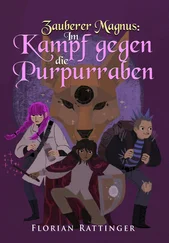Sylvie Germain - Magnus
Здесь есть возможность читать онлайн «Sylvie Germain - Magnus» весь текст электронной книги совершенно бесплатно (целиком полную версию без сокращений). В некоторых случаях можно слушать аудио, скачать через торрент в формате fb2 и присутствует краткое содержание. Год выпуска: 2008, Издательство: Dedalus Ltd, Жанр: Современная проза, на английском языке. Описание произведения, (предисловие) а так же отзывы посетителей доступны на портале библиотеки ЛибКат.
- Название:Magnus
- Автор:
- Издательство:Dedalus Ltd
- Жанр:
- Год:2008
- ISBN:нет данных
- Рейтинг книги:3 / 5. Голосов: 1
-
Избранное:Добавить в избранное
- Отзывы:
-
Ваша оценка:
- 60
- 1
- 2
- 3
- 4
- 5
Magnus: краткое содержание, описание и аннотация
Предлагаем к чтению аннотацию, описание, краткое содержание или предисловие (зависит от того, что написал сам автор книги «Magnus»). Если вы не нашли необходимую информацию о книге — напишите в комментариях, мы постараемся отыскать её.
Magnus — читать онлайн бесплатно полную книгу (весь текст) целиком
Ниже представлен текст книги, разбитый по страницам. Система сохранения места последней прочитанной страницы, позволяет с удобством читать онлайн бесплатно книгу «Magnus», без необходимости каждый раз заново искать на чём Вы остановились. Поставьте закладку, и сможете в любой момент перейти на страницу, на которой закончили чтение.
Интервал:
Закладка:
Terence does not try to prevent Scott from leaving, he quietly surrenders to that very state of abandonment in which May left him. He becomes strangely indifferent, to everything, to everyone, to himself, while at the same time displaying great courtesy in his detachment, perhaps to temper its excess, not to give way to it too soon. He is as discreet in his self-effacement as he had previously been in charming people.
He eventually disappears completely, without telling anyone where his place of retreat is.
And loneliness closes in on Magnus, or rather opens up and deepens around him. She who had the gift of propelling dreams into reality and making the days magical is gone, taking with her all dreams, all desires, and the days have no sparkle or zest any more. He ceases to travel, to have any enthusiasm for going to plays, concerts, exhibitions. His interests as a translator shift, turning away from art and to history. This is a vast area of study, but Magnus slowly comes back to the very thing he had tried to escape by leaving Europe, and soon he is wrapped up in it: the recent past, still very much alive, of Europe and its wars, the last one especially.
It is as if the old demons of his childhood and adolescence had stealthily followed him across the Atlantic and gone into hibernation during the long decade he has been living in this continent on the far side of the globe, indulging to excess a thirst for wandering, trying to anaesthetize himself with new experiences, with freedom; as if they had bided their time for the moment to awaken and surreptitiously resume their attack.
He transfers the energy he had expended in discovering museums and art galleries, theatres, cabarets, and underground art venues across America, and now devotes it to searching through archives and documents in the silence of libraries, and attempting to establish a dialogue with the many testimonies of both victims and perpetrators of the enormous barbarities of his century, in particular that which originated in the country of his early childhood. The translator becomes himself a historian, or rather an amateur detective accountable solely to his conscience, still tormented with questions.
But the detective becomes lost in the labyrinths of human madness so easily allied with wickedness, he teeters on the brink of the abyss of human folly and its capacity for confusing good and evil, evil and duty, and then carrying out the most shameful deeds with meekness and diligence, untroubled, in all good conscience.
Slowly the memory of his years in London resurface in his mind. He had set aside this painful memory all the time his relationship with May and his friendship with Terence and Scott had lasted. With the Gleanerstones he had learned to relish life, something he never experienced in the Schmalkers’ austere house, where he felt like an intruder. But his relish has suddenly faded, or rather life has acquired an extremely acid flavour, and he senses he will have to live for a long time with this sharp taste of grief that erodes all desire and turns all joy to sourness. And he also senses this bitterness will be all the more enduring because he will have to keep chewing on it in isolation and silence. This is why his thoughts revert to Lothar and Hannelore, who after all gave him the first chance of a new life after his fradulent parents came to grief, fleeing their crimes in ignominious deaths.
With the passage of time he can understand better Hannelore’s distant attitude towards him, and above all he finally understands the reasons for Lothar’s long-lasting lie, and appreciates how much it must have cost him to remain silent, to tell no one what he knew, about the child who had survived Gomorrah and was then seized on and manipulated by his sister. Lothar had fought his battle of conscience alone. Alone before the God who was at the centre of his life. God: like a silent abyss, though one from which a wind blew, causing flurries of words, unheard-of and inaudible, to sigh in an undertone.
With May he had never broached the question of God. On this subject there was no question in her mind, only a negation, the bald fact of Nothingness. In her eyes any religion was no more than frills and furbelows, of greater or lesser crudeness or sophistication, arranged round this vacuum to conceal the sickening enormity of it. The earth, the universe, human life were simply the results of a bizarre accident. Results as pernicious as they were glorious. And the only ‘divine voice’ she recognized was the muffled heartbeat of the living when it becomes fabulously resonant in the joyful hours of existence, the nocturnal hours of distress, and the sun-bright moments of sensual pleasure.
Was it in order to leave Magnus with only the memory of these sun-bright moments that she expelled him from her bedroom as death neared? Or was it because Terence’s love was more intimate, more precious to her than any other? The doubt that arose in him on that day of farewell, up there in the cold blueness of the sky, continues to nag at him. Was their relationship as strong, as free and bright as he thought? Was he able to love her well enough to meet her expectations? Was he able to love anybody in fact? And supposing that in the ravishment of his childhood, on the night of Gomorrah, he had also lost all capacity for love? Supposing he was left with only a heart half-charred in the flames that had enveloped his mother, crystallized in the salt of his amazement, tears and terror? Doubt gathers, spreads through his entire being, gnaws away at him.
But would he be so susceptible to doubt, he wonders when his perplexity reaches a peak of intensity, if a second ravishment had not taken place in the wake of the first, not violent this time but soothing, effected day after day, painstakingly, by Thea and Clemens Dunkeltal, the mad woman and the assassin? How could you not suspect everything, even yourself, when so many lies have been distilled inside you?
So his old demons beset him again. They become ever more pressing as the months go by and in the end so thoroughly regain possession of him that he decides to return to Europe after a dozen years’ absence if not abjuration.
Resonances
‘Magnus? Who is Magnus?’ May had asked.
Magnus is an average-sized teddy bear with a very worn light-brown coat, slightly orange-coloured in places. A faint smell of scorching and of tears emanates from him.
His eyes are peculiar, of the same shape and golden yellow — slightly faded — as a buttercup, which gives him a gentle gaze, clouded with amazement.
Magnus is a man of about thirty years of age, of average build, with broad shoulders, a rough-hewn face. An impression of strength and lassitude emanates from him.
His eyes, of brown with bronze reflections sometimes turning to yellow amber, are deep-set, which gives him a peculiar gaze — that of a watchful dreamer.
Here I and you
Stand each in our degree:
What do you mean to do, —
Mean to do?
‘And what’s become of May? Did she stay behind in Comala?’
Black milk of first light…
We dig in the air a grave…
Fragment 17
‘I was sure you would come back one day, and in just this way, without warning, like the prodigal son,’ says Lothar. ‘All these years, without any news of you at all … I imagined various lives you might be leading, I hoped you’d found peace. And forgiveness.’ Lothar speaks in German, and this language which Magnus has not spoken for years sounds strange to his ears. The words reach him from a distance, as though fogged and frosted, embedded in a rough matrix, and suddenly he remembers the diamonds with which Thea had tricked out his teddy bear, diamonds encrusted with grey tears.
Читать дальшеИнтервал:
Закладка:
Похожие книги на «Magnus»
Представляем Вашему вниманию похожие книги на «Magnus» списком для выбора. Мы отобрали схожую по названию и смыслу литературу в надежде предоставить читателям больше вариантов отыскать новые, интересные, ещё непрочитанные произведения.
Обсуждение, отзывы о книге «Magnus» и просто собственные мнения читателей. Оставьте ваши комментарии, напишите, что Вы думаете о произведении, его смысле или главных героях. Укажите что конкретно понравилось, а что нет, и почему Вы так считаете.












